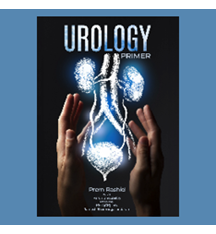2023 | Volume 24 | Issue 2
Advocacy at RACS

RACS has a strong history of advocacy across Australia and Aotearoa New Zealand. We are committed to effecting positive change in healthcare and the broader community by adopting informed and principled positions on issues of public health.
We regularly advocate for these positions across several different mediums—including through the media, public campaigns, or by negotiating directly, or providing written submissions to both government and non-government agencies.
Read on to find out more about our advocacy work.
Pre-budget submission
In the lead-up to the federal budget RACS has written to the Australian Federal Government outlining a list of key priorities that the College would like to see funded and supported. These are:
- building respectful and safe workplaces for all who work in surgery and the wider health sector
- guaranteeing the public sector provides timely access to essential surgery
- expanding surgical (and other specialist) services in rural areas expanding surgical (and other specialist) services for Aboriginal and Torres Strait Islander people
- recruiting, training and incentivising operating room and post anaesthesia care unit (PACU) nurses
- implementing appropriate policies to improve surgical registry participation, and a sustainable funding model for surgical registries
- ensuring the private sector continues to alleviate pressure on public waiting lists
- ensuring equitable access to telehealth
- reducing the burden of trauma
- safeguarding the health of all Australians from the threat of climate change
- committing to health security and long-term health systems strengthening in Papua New Guinea.
Full submission
Precision health
Manatū Hauora, the Ministry of Health, asked for feedback on its proposed long-term insights briefing topic. These briefings are designed to get us thinking about the future, and the suggestion was to look at precision health.
Precision health is a growing field that aims to use emerging technology and all available information (such as an individual’s genome, current biophysical measures, and environment) to predict, prevent, diagnose, and treat disease more precisely.
RACS agreed precision health is a worthwhile topic but warns it needs to be explored in a culturally safe manner. It recommended focusing on population health rather than individual genomics so social determinants, which are key drivers of health inequities, can be considered.
The RACS submission also raised concerns about the finite financial resources for healthcare and warned precision health should not be considered at the expense of other essential health interventions.
Full submission
New standards for assessment and accreditation of cosmetic surgery programs of study
RACS made a submission in response to the Australian Medical Council’s consultation on new standards for assessment and accreditation of cosmetic surgery programs of study.
The RACS submission was endorsed by the Australian Society of Otolaryngology Head and Neck Surgery, Breast Surgeons of Australia and New Zealand, General Surgeons Australia and the Urological Society of Australia and New Zealand.
Full submission
The Australian Commission on Safety and Quality in Health Care (ACSQHC) draft sustainable health care module
The Lancet Commission on climate and health has previously called for the healthcare community to take a leadership role in advocating for emissions reductions. This also included to critically examine its own activities with respect to their effects on human and environmental health.
In recent years the environmental sustainability of surgical practice has become an advocacy priority for RACS. The College has also developed a dedicated Environmental Sustainability in Surgical Practice Working Party (ESSPWP).
Surgeons and other healthcare professionals will play a critical role in reducing the emissions of healthcare, including preparing and building resilience into the sector. We therefore supported the development of a module and made various recommendations to the ACSQHC.
Revised telehealth guidelines
RACS has responded to the Medical Board of Australia’s revised telehealth guidelines. In principle RACS agreed with the third option put forward in the discussion paper (see submission for more detail) however, our response highlighted where the guidelines could be further strengthened.
As an example, RACS firmly supports non-video initial consultations in appropriate circumstances. However, current rules under Medicare suggest that initial telehealth consultations must only be by video while follow-ups can be either video or telephone. This ruling presents unintended difficulties for various reasons for the implementation of these guidelines.
Full submission
Draft Australian Health Practitioner Regulation Agency (Ahpra) data strategy
Ahpra recently consulted on a draft data strategy. The RACS response highlighted that the main objective of any medical registration scheme should be to protect patients. Our response acknowledged that the draft strategy broadly encompasses the key themes to support this objective. However, RACS would appreciate more dialogue about how Ahpra makes assessments with respect to balancing the public interest with the interest of an individual practitioner/s.
Full submission
South Australia Late night trading code of practice review
The South Australia State Committee and South Australia Trauma Committee provided a response to a review of the state’s Late night trading code of practice. The submission recommended:
- The existing safety measures detailed in the Late night trading code of practice are maintained.
- South Australia significantly invests in enhanced alcohol related harm data, including data on alcohol-attributable hospitalisations, deaths, injuries and emergency department presentations.
- Any decision to reverse measures outlined in the Late night trading code of practice are accompanied by financial modelling, which considers the increase in secondary costs of alcohol related harm.
Want to know more about RACS Advocacy?
RACS distributes a newsletter, which includes detailed updates on recent RACS submissions from Australia and Aotearoa New Zealand, active consultations, and engagement opportunities, as well as various other items of interest.
If you would like to be added to the distribution list for future issues, please email the RACS Policy and Advocacy Team at [email protected]

